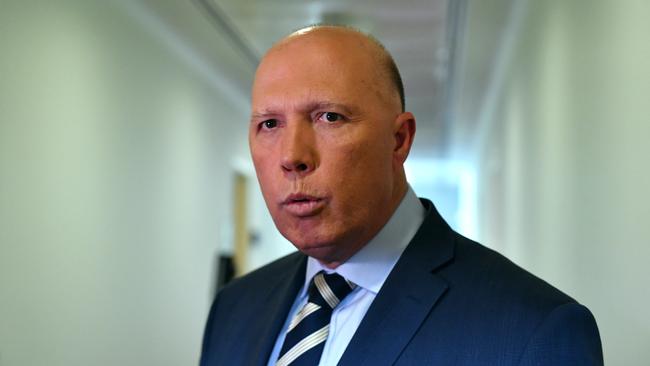Peter Dutton lashes Labor over medivac path to Australia
Peter Dutton has lashed Labor for ‘conning’ Australians over its medivac legislation.

Home Affairs Minister Peter Dutton has lashed Labor for “conning” Australians over its medivac legislation, saying the “bad bill” was being used by asylum-seekers to rort the system.
It comes as the head of Operation Sovereign Borders, Craig Furini, told a Senate estimates hearing on Monday that 135 asylum-seekers had been transferred to Australia from offshore detention for medical treatment since the legislation passed against the government’s wishes in February.
Of those transferred, 13 people had been hospitalised, while five refused treatment.
“This was always a bill about getting people here through a back door,” Mr Dutton told 3AW radio on Tuesday.
“It’s without precedent that you have a government being dictated to, being told that people must come to your country, and then when they’ve received the medical attention they can’t be returned back to their country of origin or back to Nauru or Papua New Guinea.”
Mr Dutton said six asylum-seekers who came to Australia under the legislation presented serious concerns, but he was powerless to stop their entry into the country.
“We’re worried about the fact they may have committed crimes and we’re compelled to take that person. I just don’t think most Australians support that,” he said.
“We’ve had six of those cases now. There are two more in the system as well. And I think people are laughing at us. It’s infuriating. We’re now stuck with these people. It’s a bad bill for our country.”
Home Affairs Department secretary Mike Pezzullo told the hearing on Monday it was a “grievous flaw in the legislation” that detainees could be brought to Australia for assessment without the ability to return them to offshore processing.
He said there had been 1117 medical transfers from PNG and Nauru since 2013, with “only a handful” sent back.
Mr Dutton said he was relying on the support of crossbench senator Jacqui Lambie and other independents to reverse the bill.



